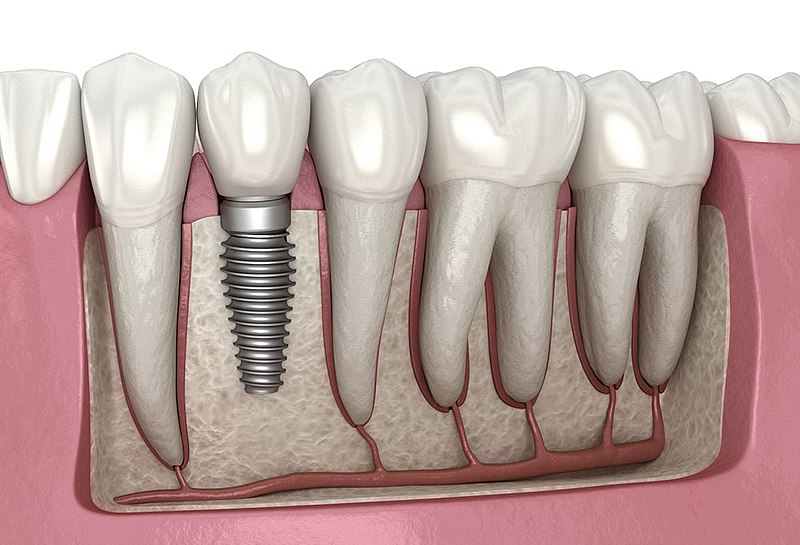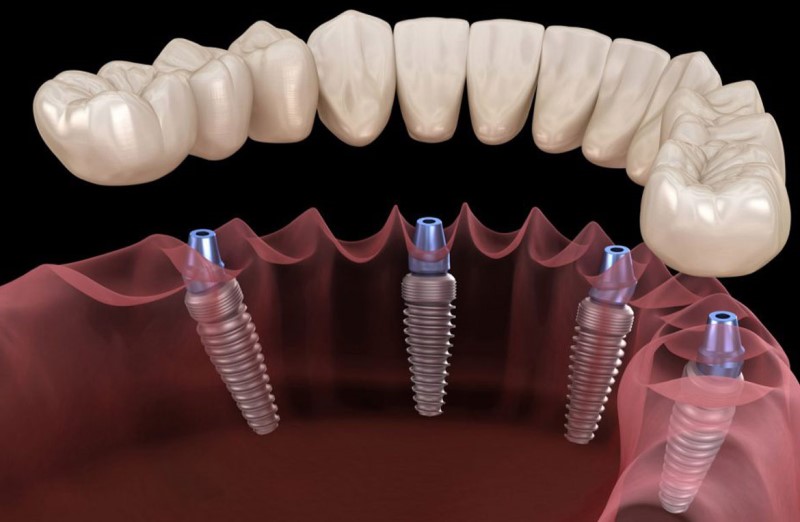Facing the unexpected scenario of a dental implant falling out can be concerning. However, knowing how to respond is crucial for your oral health and well-being.
In this guide, Platinum Dental Group will explore the necessary steps to take when your dental implant falls out, helping you navigate this situation with confidence and care.
Why do dental implants fall out?
Dental implants are typically designed to be a stable and long-lasting solution for replacing missing teeth. However, there are some situations where dental implants may become loose or fall out. Here are some common reasons why dental implants can fail or fall out:
- Inadequate Osseointegration: Osseointegration is the process where the implant fuses with the surrounding bone. If this process doesn’t occur properly or completely, it can result in implant instability. This can happen due to various factors, such as poor bone quality or quantity, infection, or inadequate healing time.
- Infection: Infections around the implant site can lead to implant failure. Bacterial infections can cause inflammation and damage to the bone and soft tissue, compromising the implant’s stability.
- Peri-implantitis: This is a condition similar to gum disease but specifically affecting dental implants. It can lead to the loss of supporting bone around the implant, which can result in implant failure.
- Improper Placement: If the implant is not placed correctly or is not aligned properly with the natural bite, it can lead to complications and instability.
- Inadequate Aftercare: Proper oral hygiene and post-operative care are essential for the long-term success of dental implants. Neglecting oral care, such as regular dental check-ups and cleanings, can lead to complications.

Signs of loose dental implants
Keep in mind that any of these signs should prompt you to seek immediate evaluation and treatment from your dentist or oral surgeon to prevent further complications. The signs of loose dental implants may include:
- Mobility: One of the most apparent signs is implant mobility. If you can feel or observe any movement or wiggling of the implant, it’s a clear indication of a problem.
- Pain or Discomfort: Persistent pain or discomfort around the implant site, especially during biting or chewing, can be a sign of implant instability.
- Swelling and Inflammation: Swelling, redness, or inflammation around the implant may indicate an issue. In some cases, pus or discharge may be present.
- Bleeding Gums: Bleeding from the gum tissue surrounding the implant can be a sign of an underlying problem, especially if it occurs when you brush or floss.
- Change in Bite: A change in your bite or the way your teeth come together when you close your mouth could be a sign of implant trouble.
- Unusual Sensations: Sensations of pressure, a strange taste, or clicking sounds around the implant site may suggest a problem.
- Loosening Prosthesis: If a dental crown, bridge, or denture attached to the implant becomes loose or dislodged, it’s an indicator that the implant may be compromised.
- Receding Gums: If the gum tissue surrounding the implant starts to recede or pull away, it may expose the implant and lead to instability.
- Bad Breath: Persistent bad breath or an unpleasant taste in your mouth can sometimes be associated with infection or complications around the implant.
- Difficulty Eating: Problems with chewing or discomfort while eating may be due to a loose implant.

What should I do when my dental implant fell out?
If your dental implant has fallen out or become dislodged, it’s essential to take immediate action. Here are the steps to follow:
- Retrieve the Implant: If you can locate the implant, handle it with care. Pick it up by the implant crown (the visible part) rather than the implant post to avoid any potential damage.
- Do Not Force It Back: Do not attempt to reinsert the implant on your own. It’s crucial not to force it back into the socket as you may cause more harm.
- Rinse Gently: If the implant is soiled, you can rinse it gently with warm water. Avoid using soap, chemicals, or alcohol for cleaning.
- Preserve the Implant: To keep the implant viable, you should store it properly. Place it in a clean container or a sterile saline solution to prevent it from drying out. Do not place it in tap water, as this can damage the implant.
- Contact Your Dentist: Reach out to your dentist or oral surgeon immediately. They will be able to provide guidance and schedule an emergency appointment to assess the situation.
- Avoid Smoking and Drinking: During this time, refrain from smoking or drinking alcohol, as these can impede the healing process.

How to care for dental implants?
Caring for dental implants is essential to ensure their longevity and maintain your oral health. Here are some key steps to follow for proper dental implant care:
- Oral Hygiene: Just like your natural teeth, dental implants require regular and thorough oral hygiene. Brush your teeth, including the implant crown, at least twice a day using a soft-bristle toothbrush. Pay extra attention to cleaning around the implant area. It’s also important to floss daily to remove plaque and food particles between the teeth and around the implant.
- Antimicrobial Rinse: Your dentist may recommend using an antimicrobial mouthwash to reduce the risk of infection around the implant site. Follow your dentist’s instructions for its use.
- Regular Dental Check-Ups: Schedule regular dental check-ups and cleanings with your dentist. These visits are crucial for monitoring the condition of your implants, assessing bone health, and ensuring that there are no issues developing.
- Avoid Tobacco: Smoking or using tobacco products can increase the risk of implant failure. It’s advisable to quit smoking or avoid tobacco to support the long-term success of your dental implants.
- Limit Alcohol: Excessive alcohol consumption can affect oral health and bone healing. Moderation is key.

Understanding why dental implants may fall out, recognizing signs of loose dental implants, and knowing what to do if a dental implant fell out is crucial for maintaining oral health.
By proactively caring for your dental implants through proper hygiene and regular check-ups, you can reduce the risk of complications where a dental implant fell out, ensuring their longevity.


